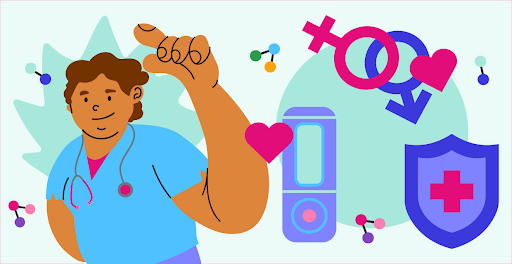u
Understanding the prejudice surrounding STIs
Whistle about sexually transmitted infections (STIs) because they are common, not shameful! STIs can have a substantial and harmful shame and stigma attached to them. It typically develops from misunderstandings, anxiety, and social misconceptions about sexuality and health. Stigma can lead to discrimination, shame, and barriers to seeking testing and treatment. If someone gets infected by an STI, they fear disclosing it to their close ones due to the perceived negative responses. The thought that they are inadequate hits them up mentally.
Now, we have to create a positive and safe place for informed conversations among each other. Keep these facts in your mind:
- STIs are just a type of infections. They don’t signify your morality and hygiene.
- Most STIs are asymptomatic, i.e. they don’t show any symptoms. This means that the only way to know whether you have one is to be tested periodically.
- An STI can be acquired through sexual contact with just one partner. The only thing an STI indicates about your past sexual experiences is that you most likely didn’t consistently engage in safer sexual behaviour.
- It’s possible that some of the individuals stigmatising others with STIs may themselves be STI carriers. They believe that by refraining from diagnosis they can avoid lying about it or running the risk of being rejected if they don’t know the fact that they have caught an STI. Hence, they end up spreading the disease before they experience any serious personal consequences.
- STIs are not only transmitted through sexual contact. They can also pass from one person to another through blood transfusion, sharing of infected needles, or even during childbirth and breastfeeding.

Conclusion
Some STIs may be treatable, if not curable. Awareness has to be built around STIs and their testing in society. Stereotypes against STIs have to be scrapped. Reducing the stigma attached to STIs requires education, attempts at destigmatization, and the encouragement of candid conversations about sexual health. All you need to do is get yourself tested regularly if you are sexually active, and accept and love yourself even if you are diagnosed with an STI.
Author


1 thought on “Understanding the prejudice surrounding STIs”
This article is really appreciable as one leap for bridging the gap by creating awareness regarding such issues among the youngesters (not only adolescent age group but for adults those are under reproductiveage group)👌👍